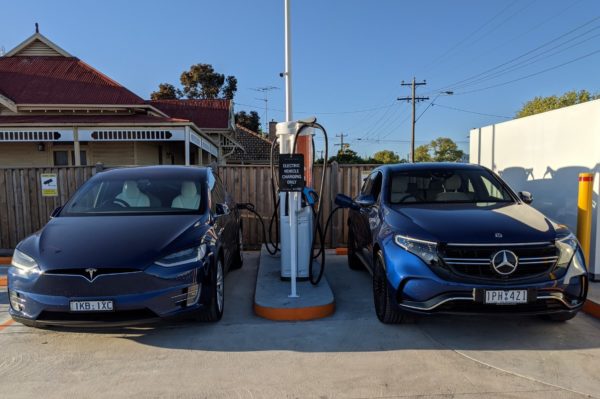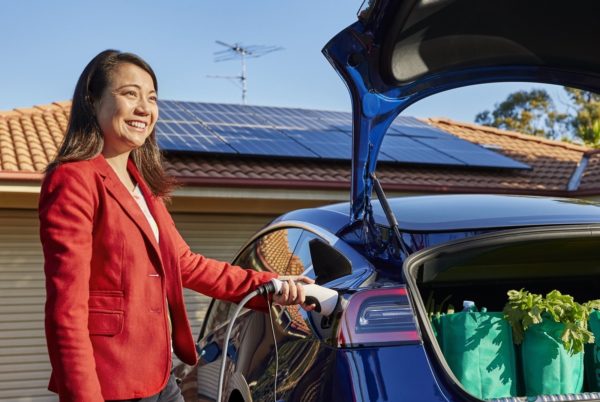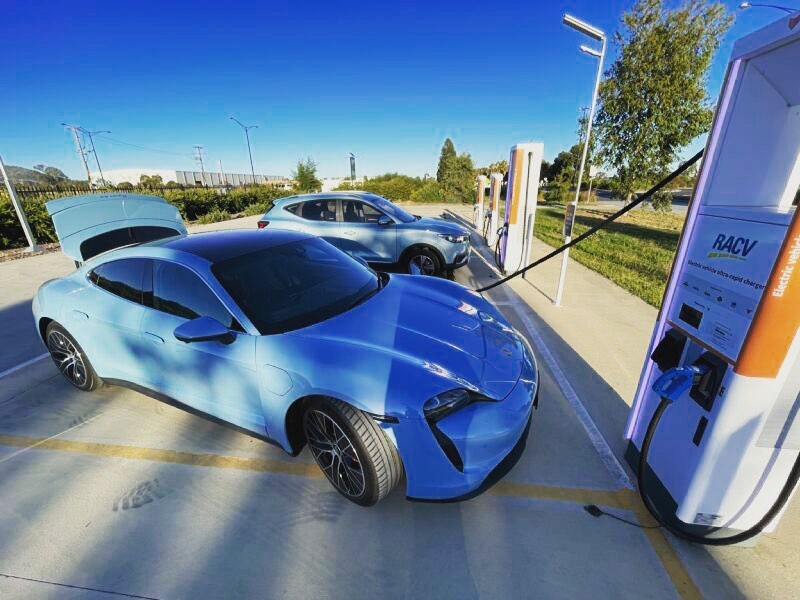In a move designed to accelerate the uptake of electric vehicles (EVs), the Victorian Government has committed $5 million in funding to expand the state’s network of fast chargers to meet an expected surge in demand for zero emissions vehicles.
The government announced the funding package on Thursday, calling for businesses, councils and community organisations across the state to apply for grants to install EV charging stations as it looks to drive the uptake of EVs.
Minister for Energy, Environment and Climate Change Lily D’Ambrosio said the funding will deliver about 100 new charging stations across the state with regional Victoria to receive 80% of the funding.
The new chargers will range from 11 kW to 100 kW and will include chargers that provide EVs with enough power to drive 100km after 10 minutes of charging.
“This will make it easier for electric vehicle drivers to make the trips they need, knowing that there will be a charging station when they need, where they need,” D’Ambrosio said.
The funding package is the latest initiative rolled out by the Victorian Government after it last month introduced its controversial EV road tax.
The tax, labelled by some as the “worst electric vehicle policy in the world”, will see EV drivers pay a levy for every kilometre travelled on public roads in the state. From July 1, drivers of electric and other zero-emission vehicles will pay 2.5 cent/km while drivers of plug-in hybrid-electric vehicles will pay 2.0 cent/km.
While that policy has attracted widespread criticism, the Victorian Government has continued to roll out initiatives designed to help it meet its target that 50% of all new car sales be zero emission vehicles by 2030.
The $5 million in funding is part of a $100 million package which includes more than 20,000 subsidies starting at $3,000 to help Victorians purchase a zero emissions vehicle and funding to drive uptake across the government and commercial fleet.

Image: Chargefox
Australia has been slow to embrace EVs with data provided by industry body the Electric Vehicle Council (EVC) revealing key barriers include vehicle prices, model availability, and the distance over which they can travel on a single charge.
The lack of access to charging stations is another major roadblock with more than 50% of motorists citing it as a key barrier to the adoption of EVs.
ECV chief executive Behyad Jafari has previously said establishing a comprehensive network of fast-charging stations will be critical to the uptake of EVs in Australia.
The Victorian Government announcement comes just days after New South Wales announced a $3,000 upfront discount and 100% stamp duty discount on new EVs bought in the state, which is set to boost the uptake of EVs significantly.
The NSW incentive is part of a $500 million plan to have battery-powered vehicles account for half of all new car sales in the state by 2031 and includes $131 million to establish an ultra-fast charging network within reach of all major highways across the state.

Image: Origin
Meanwhile, utilities giant Origin Energy has called on state and federal governments to incentivise the installation of smart chargers in the homes of EV drivers in order to ensure the grid can support the expected growth in EV ownership.
The call comes after Origin revealed the initial data from a trial designed to analyse how EVs would impact the power grid when they’re eventually adopted more widely across Australia.
The trial, which will conclude in December 2022, has seen the installation of smart chargers for 70 residential EV owners and 33 businesses and obtained their baseline charging data.
Smart chargers co-ordinate recharging times with periods of surplus solar PV, such the middle of the day, and avoid adding strain to peak demand periods on the grid from 5-6pm onwards.
Prior to the trial more than 60% of the participants were plugging their vehicles directly into the standard garage socket when they got home of an evening and Origin’s head of e-mobility, Chau Le, told the Sydney Morning Herald this could cause grid security issues as EV uptake continues to rise.
“Without incentives and regulatory policies that encourage smart charging, that’s what’s going to happen when mass-market adoption takes off; you’re going to have all these EVs that are being charged that cannot be enrolled onto smart-charging programs or cannot be managed,” Le said.
“We do expect … that will cause constraints on the network and the wholesale market, if it’s not managed properly.”
Origin expects EV ownership to rise sharply in Australia and predicted it could account for an additional 22 TWh of load on the electricity grid by 2040.
This content is protected by copyright and may not be reused. If you want to cooperate with us and would like to reuse some of our content, please contact: editors@pv-magazine.com.









By submitting this form you agree to pv magazine using your data for the purposes of publishing your comment.
Your personal data will only be disclosed or otherwise transmitted to third parties for the purposes of spam filtering or if this is necessary for technical maintenance of the website. Any other transfer to third parties will not take place unless this is justified on the basis of applicable data protection regulations or if pv magazine is legally obliged to do so.
You may revoke this consent at any time with effect for the future, in which case your personal data will be deleted immediately. Otherwise, your data will be deleted if pv magazine has processed your request or the purpose of data storage is fulfilled.
Further information on data privacy can be found in our Data Protection Policy.